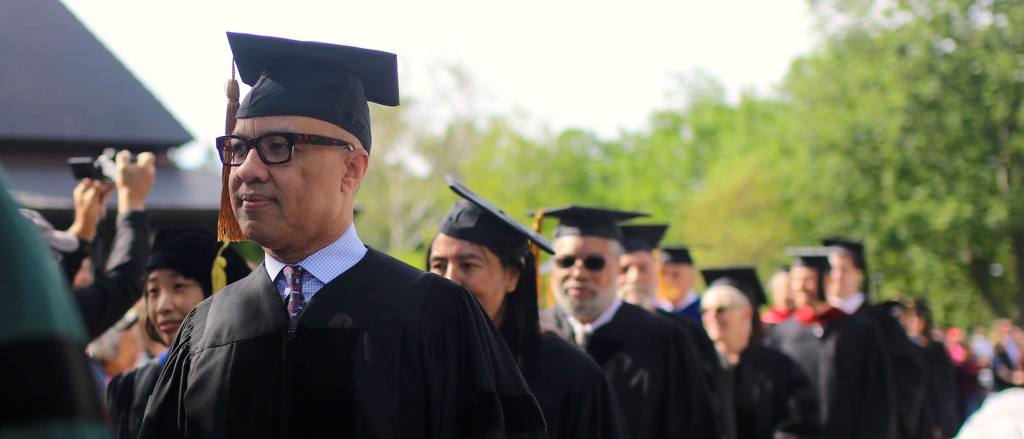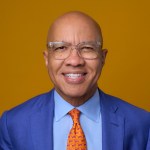
It’s graduation time: Around the country and around the world, family and friends are coming together to celebrate the accomplishments of the newly minted graduates in their lives—to mark the conclusion of one stage and the beginning of another.
In such a season of promise, it is my pleasure and privilege to be asked to address these graduates and take part in their special occasion. Figuring out what to say to them in these moments is a charge I take seriously. What message can I impart that pays tribute to their achievements, and also looks beyond the world of one campus to the wider one beyond it?
This year, I’ve found myself in a position familiar to many new graduates: searching for wisdom in the words of those who have faced challenges before us. In particular, I’ve been reflecting on the Ford Foundation’s long-standing commitment to democracy—and the ways that today, around the world, democracy and democratic values are under siege.
Of course, this is not a new challenge. With that in mind, I’ve found myself reflecting on the “Four Freedoms” so eloquently outlined by President Franklin Roosevelt in 1941. Addressing Congress as war raged around the world, President Roosevelt made a point of laying out the essential freedoms he believed every person should enjoy: Freedom of speech. Freedom of belief. Freedom from want. And freedom from fear.
President Roosevelt’s articulation of these freedoms has always resonated with me, and like all great addresses, its meaning shifts and deepens over time. What FDR did not say, however, was this: While these freedoms may well be “inalienable,” in Thomas Jefferson’s words, they are not inevitable. Our freedom—as individuals and collectively—is derived from our responsibility to one other.
As I reread that seminal speech earlier this year, preoccupied with thoughts about the world’s many challenges and the ways we might all rise to meet them, it struck me how profoundly freedom is connected to responsibility. During the past few weeks, this idea inspired and informed four separate, but related, commencement addresses I was honored to deliver:
At the advanced degrees ceremony at Michigan State University, I spoke about how with the freedom from want comes our responsibility to serve.
At the advanced degrees ceremony at Simmons College, I explored how our freedom of speech comes with the responsibility to listen.
At Oberlin College, I talked about how our freedom of belief means we have a responsibility to accept each other, with empathy.
Finally, at the commencement for the Paul H. Nitze School of Advanced International Studies at Johns Hopkins, I focused on how the freedom from fear gives us the responsibility to act.
I believe that these responsibilities come along with our freedom. They are what that freedom demands we do for others. And it is through the exercise of these responsibilities that freedom expands.
From small private colleges to large public universities, associate degrees to PhDs, our world needs the talents of these bright and brilliant graduates more than ever. Our democratic future depends on them. I’m optimistic that their energy and courage will buoy our nation and the world. And I am confident the rest of us will join them in embracing our responsibility to preserve and strengthen the freedoms we cherish.
